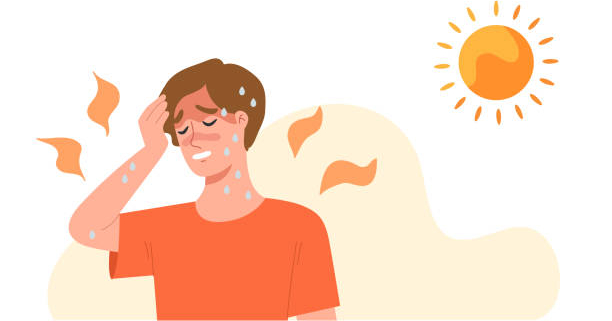As temperatures climb over 40°C in parts of India, it’s crucial to stay cool, attentive, and hydrated to prevent heat-related problems like dehydration, heat exhaustion, and heat stroke. With heat wave alerts spreading across the country, it’s important to take precautions during the summer months. Below are some easy-to-follow tips to stay safe and hydrated this summer. But before diving into those, let’s learn about the signs of heat stroke.
What Happens When You Get a Heat Stroke?
Heat stroke and heat exhaustion happen when your body struggles to regulate its core temperature due to too much sun and heat exposure. Signs of heat stroke include:
- Feeling dizzy
- Being extremely tired
- Getting headaches
- Sweating a lot
- Feeling sick and throwing up
- Having a high body temperature, often over 104 degrees
In serious cases, heat stroke can lead to life-threatening symptoms like confusion, irrational thoughts, or seizures. These happen because your body’s systems start to shut down. These severe signs of heat stroke need urgent medical attention in adults. If you experience these symptoms, it’s really important to get emergency medical help as soon as possible. Heat stroke is a medical emergency, and getting quick treatment is crucial to prevent serious problems or even death. Keep reading to learn how you can stay cool despite the summer heat.
Tips for Staying Safe in Hot Weather
Here are eight easy tips to help you stay cool and avoid heat-related problems this summer:
- Drink plenty of water: Keeping hydrated helps your body regulate its temperature, especially when it’s hot outside. Drink fluids regularly, even if you’re not feeling thirsty. Electrolyte drinks can be particularly helpful if you’re sweating a lot.
- Wear loose, light clothing: Clothes that let air flow through, like cotton, help your body cool down better than tight-fitting ones.
- Protect yourself from the sun: Use umbrellas, wide-brimmed hats, gloves, and sunscreen with SPF 30 or higher to prevent sunburn. Reapply sunscreen every few hours, especially if you’re swimming or sweating.
- Get used to the heat: Spend some time outside gradually to let your body adjust to hot temperatures. This process, called acclimatization, helps you handle the heat better.
- Avoid overexertion: Don’t push yourself too hard, especially when it’s really hot. Limit intense workouts or physical activity during the hottest parts of the day, and make sure to stay hydrated.
- Be cautious with medications: Some medicines can make you more susceptible to heat-related issues. Talk to your doctor about any medications you’re taking and their effects in hot weather.
- Take it easy during peak heat hours: If you have to be active outside, try to do it in the cooler mornings or evenings. Check the weather forecast and plan accordingly.
- Look out for vulnerable people: Keep an eye on children, infants, and older adults, as they’re more prone to heat-related illnesses. Make sure they stay hydrated and cool, and watch for signs of heat exhaustion, especially in babies.
By following these tips, you can stay safe and comfortable during the summer heat.
Conclusion
Heat stroke demands urgent attention and medical care. Ignoring it can result in serious complications affecting various organs like the brain, heart, lungs, muscles, and kidneys. Delaying treatment only worsens the damage, emphasizing the critical need to seek medical assistance as soon as signs of heat stroke appear.






